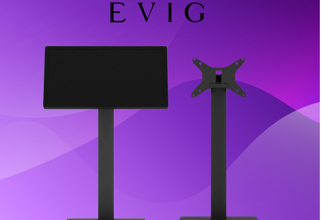Fresh Start: Best Online Tools for Helping You Change Careers

Changing careers can feel both exciting and overwhelming. From refreshing your résumé to building a new network, the process requires careful planning and the right resources. Fortunately, there are online tools designed to make each step smoother, whether you’re learning new skills, connecting with opportunities, or presenting yourself professionally in a new field.
Here are the best online tools to help anyone navigating a career transition.
1. LinkedIn Learning: Build In-Demand Skills
When entering a new career, closing skill gaps is essential. LinkedIn Learning offers thousands of on-demand courses covering everything from technical skills like coding and UX design to soft skills like leadership and communication.
The platform also recommends courses based on your desired career path, making it easy to focus on what matters most. A bonus? You can display completed courses and certifications directly on your LinkedIn profile, helping you stand out to recruiters in your target industry.
2. Coursera: Gain Professional Credentials
If you’re switching to a career that values formal certifications, Coursera is a smart investment. It partners with top universities and companies to offer professional certificates, degrees, and hands-on projects.
Coursera’s flexibility allows you to learn at your own pace while still gaining credentials recognized by employers. Many programs also include real-world portfolio projects, which can be shared in job applications to demonstrate practical experience.
3. Zety: Tailor Your Résumé and Cover Letters
Your résumé often needs a complete overhaul when switching careers. Zety provides templates and guided suggestions to help you emphasize transferable skills and highlight achievements relevant to your new path.
What makes Zety powerful is its customizable phrasing tips. As you enter your information, it suggests strong action verbs and tailored descriptions that align with hiring trends. This is especially useful for career changers who need to reposition their past experience effectively.
See also: How AI Improves Business Presentations With Smart Design
4. Glassdoor: Research Companies and Salaries
When stepping into a new industry, it’s vital to understand the landscape. Glassdoor allows you to research companies, read employee reviews, and compare salaries for your target role.
A unique feature is the interview insights section, where past applicants share their experiences and questions asked. For career changers, this helps demystify unfamiliar hiring processes and prepare with confidence.
5. Meetup: Expand Your Network
Networking is often the bridge to new opportunities. Meetup helps you find local and virtual events tailored to your industry or interests. From coding workshops to marketing panels, it’s a practical way to meet professionals in your new field.
For career changers, joining Meetup groups provides not just education but also community support. These events often lead to mentorships, collaborations, and even job referrals, making them a powerful tool in your transition journey.
6. Canva: Build Your Personal Brand
Career changes aren’t just about skills — they’re also about presentation. Canva allows you to design professional résumés, LinkedIn banners, and personal websites that reflect your new identity.
The Brand Kit feature ensures consistent colors, fonts, and logos across all your materials. This makes you look polished and intentional, which is especially important when breaking into a new industry. Canva’s affordability and versatility make it a must-have for branding yourself during career shifts.
💼 FAQ: Business Card Design for Career Changers
While digital profiles are important, physical business cards still carry weight in networking and interviews. They’re a simple yet powerful way to reinforce your professional identity as you step into a new career. Here are answers to common questions about business card design for career changers.
Why should I invest in business cards during a career change?
Business cards help make a strong first impression at networking events, conferences, or interviews. They signal professionalism and provide a tangible reminder of your new career focus.
What are the best online services for designing business cards?
Top options include Adobe Express, Moo, and Vistaprint. Adobe Express offers customizable templates for beginners, Moo provides premium finishes, and Vistaprint excels with affordable bulk orders.
How can I make my business card reflect my career change?
Use a design that aligns with your new industry. Highlight updated contact info, a professional email, and, if relevant, a tagline that captures your new specialty. Modern fonts and clean layouts often work best.
Which platform is the easiest for beginners?
Adobe Express is extremely beginner-friendly, offering drag-and-drop tools and pre-made layouts. You can even try creating your own print business card directly, ensuring both quality and convenience.
Should I consider eco-friendly options for my business cards?
Yes. Many printing services now offer recycled paper and sustainable ink choices. Eco-friendly cards not only align with modern values but also make a positive impression in industries that emphasize sustainability.
Changing careers is a bold step that requires both strategy and creativity. By leveraging online tools like LinkedIn Learning for upskilling, Glassdoor for research, and Canva for branding, you can smooth the transition and present yourself with confidence. Business cards add a professional finishing touch, ensuring you stand out in every interaction.
With the right mix of learning, networking, and branding tools, your career change can become less intimidating and more empowering — helping you move forward into your next chapter with clarity and impact.




